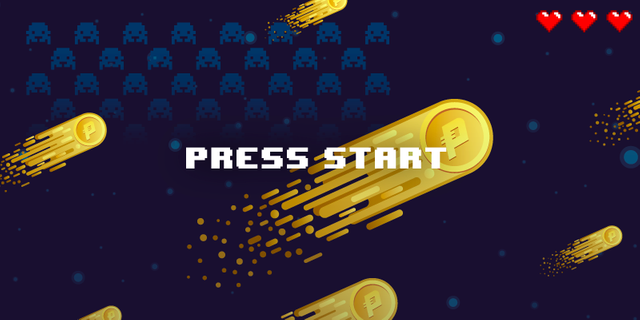The Rise Of Crypto Gaming
“Video games are bad for you? That’s what they said about rock and roll.”
— Shigeru Miyamoto, celebrated Nintendo game designer
After making dents in the financial industry and seeing world governments flinch at its potential, blockchain technology is next going to reshape video games.
Wall Street traders might lean on their conventional market experience (“buy low, sell high”) to profit on digital assets like Bitcoin and Ether, but there’s another demographic that’s well-primed for widespread cryptocurrency adoption: the hundreds of millions of gamers around the world who enjoy titles that feature an in-game currency. Whether it’s called “gold,” “credits,” or something else entirely, gamers have experienced virtual money for longer than Bitcoin has existed.
In-game currency is a prominent feature of contemporary A-list titles like World of Warcraft, Hearthstone, and Clash of Clans, but a growing population of independently developed games also feature their own virtual economy. These include titles like CryptoKitties and Parsec Frontiers, with have the exchange of cryptocurrency as a foundational mechanism for how to play. In CryptoKitties, players are breeding virtual cats to buy and sell at a profit. Parsec Frontiers sees players exploring outer space to trade goods between galaxies in search of financial gains. These are only two examples — other games might see players earn in-game currency by completing quests, defeating enemies, selling virtual items, or spending real money. Gamers are already well-versed at trading digital assets.
Crypto-enabled gaming takes this one step further: what if the ownership of those in-game items (we’re talking swords, vehicles, magic spells, and so on) was secured and verified with the blockchain? It would radically alter the idea of “ownership” within the gaming world, and it would enable gamers to participate in a completely free market of virtual goods.
Under the conventional gaming paradigm, it’s the production studios — not the players — that own everything that happens within a game. They maintain control of all the data, and the game only continues as long as the studios decide to support it. Players invest time and money as they work their way through a story, but when they grow tired of the game (or the game declines in popularity), they have no way to recoup all that effort — the time and energy they invest into a game inevitably becomes worthless. Gamers have little or no recourse because studios generally control all the value within a game.
“In the same way that blockchain technology ensures your bitcoin holdings remain your own, the rise of crypto gaming ushers in a new generation of games that feature their own decentralized economic systems.”
The emergent wave of crypto-enabled gaming solves the problem of item ownership by granting players unprecedented control of their in-game inventory. It nearly endows digital games with physical characteristics: when you buy a chess set from a store, the board and pieces are yours to do with what you like, and no one can take them away from you. Similarly, the currency or items you acquire in a crypto-enabled game are distinctly your own. You can even sell them for cryptocurrency that’s worth real money. In the same way that blockchain technology ensures your bitcoin holdings remain your own, the rise of crypto gaming ushers in a new generation of games that feature their own decentralized economic systems.
“I used to travel while playing World of Warcraft,” explains BitGuild CEO Jared Psigoda. “If I logged into my account from China, for example, my IP would get flagged and I’d be locked out. It doesn’t matter how much time, energy, or money I’ve put into the game — if the developers say it’s gone, it’s gone.” BitGuild turns this paradigm on its ear and returns power to the gamers. As a blockchain-enabled gaming platform, BitGuild stores gaming assets in a digital wallet in the same manner as cryptocurrency. If a player kills a monster and acquires a virtual sword in the process, he’s free to buy, sell, trade, or do whatever he wants with it, quite like trading cryptocurrency.
There’s already big money being spent within conventional games that don’t feature blockchain technology. Research by SuperData indicates that the games industry (including mobile, console, and PC games) generated $108.4 billion of revenue in 2017. Much of that was driven by so-called “free-to-play” games, which offer a complimentary gaming experience that’s enhanced — how else? — by spending real money within the game in exchange for items and power-ups. Players spent some $82 billion on these “free” games last year, and the trend is only upward. With this much money changing hands within conventional games, there is major precedent to protect and enhance this commerce with the same technology that’s wiggling its way into Wall Street.
These games represent a new opportunity for gamers to more fully own their gameplay experience, and for developers to grant their audience a level playing field that can be used to generate real money. Cryptocurrency is usually associated with regulatory issues, volatile swings in value, and generalized financial stress. But the rise of crypto gaming asks: what if blockchain technology was completely fun?
its about to go big now
Hi! I am a robot. I just upvoted you! I found similar content that readers might be interested in:
https://medium.com/the-notice-board/the-rise-of-crypto-gaming-39d39d37115b